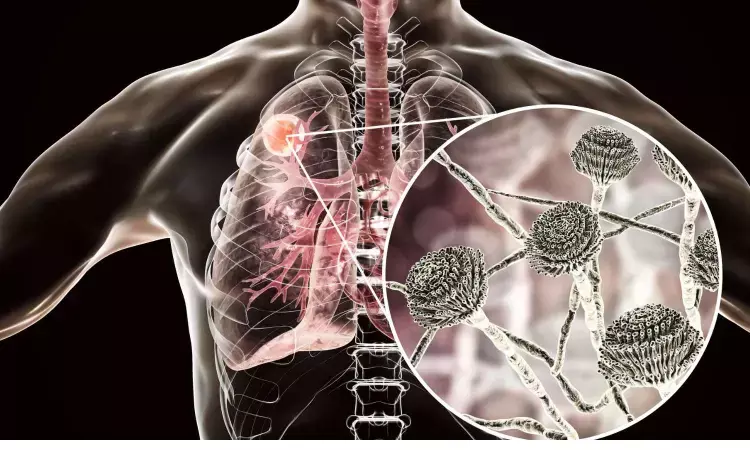- Home
- Medical news & Guidelines
- Anesthesiology
- Cardiology and CTVS
- Critical Care
- Dentistry
- Dermatology
- Diabetes and Endocrinology
- ENT
- Gastroenterology
- Medicine
- Nephrology
- Neurology
- Obstretics-Gynaecology
- Oncology
- Ophthalmology
- Orthopaedics
- Pediatrics-Neonatology
- Psychiatry
- Pulmonology
- Radiology
- Surgery
- Urology
- Laboratory Medicine
- Diet
- Nursing
- Paramedical
- Physiotherapy
- Health news
- Fact Check
- Bone Health Fact Check
- Brain Health Fact Check
- Cancer Related Fact Check
- Child Care Fact Check
- Dental and oral health fact check
- Diabetes and metabolic health fact check
- Diet and Nutrition Fact Check
- Eye and ENT Care Fact Check
- Fitness fact check
- Gut health fact check
- Heart health fact check
- Kidney health fact check
- Medical education fact check
- Men's health fact check
- Respiratory fact check
- Skin and hair care fact check
- Vaccine and Immunization fact check
- Women's health fact check
- AYUSH
- State News
- Andaman and Nicobar Islands
- Andhra Pradesh
- Arunachal Pradesh
- Assam
- Bihar
- Chandigarh
- Chattisgarh
- Dadra and Nagar Haveli
- Daman and Diu
- Delhi
- Goa
- Gujarat
- Haryana
- Himachal Pradesh
- Jammu & Kashmir
- Jharkhand
- Karnataka
- Kerala
- Ladakh
- Lakshadweep
- Madhya Pradesh
- Maharashtra
- Manipur
- Meghalaya
- Mizoram
- Nagaland
- Odisha
- Puducherry
- Punjab
- Rajasthan
- Sikkim
- Tamil Nadu
- Telangana
- Tripura
- Uttar Pradesh
- Uttrakhand
- West Bengal
- Medical Education
- Industry
Is metabolic syndrome associated with an increased risk of lung cancer?

China: A population-based prospective cohort study has shed light on the association of metabolic syndrome (MetS) with the risk of lung cancer.
The study, published in CHEST journal, revealed that an increased lung cancer risk associated with MetS indicates the importance of taking metabolic markers and status into the primary prevention of lung cancer and selection of high-risk populations for screening of lung cancer.
Lung cancer is among the most commonly diagnosed cancers and the leading cause of global cancer deaths. There has been a rapid rise in the incidence of lung cancer over the past decades and is projected to reach 3.6 million cases by 2040.
Metabolic syndrome is a cluster of interrelated risk factors, including dyslipidemia, hypertension, central obesity, and insulin resistance. Individuals with MetS are more prone to various diseases, such as diabetes and cardiovascular disease.
Recent studies have shown the association between MetS and cancer, but the relationship between the two remains controversial. While an increased lung cancer risk was reported among MetS patients in a few studies, a meta-analysis including five cohort studies found no association of MetS with the risk of lung cancer. However, these studies are largely underpowered to test the null hypothesis and the small sample size of each cohort precludes further examination on effect modifiers.
Against the above background, Mengmeng Li, Sun Yat-sen University Cancer Center, Guangzhou, China, and colleagues aimed to determine if the risk of lung cancer is associated with metabolic syndrome and its components.
The hazard ratio (HR) of MetS-related variables on lung cancer risk, both overall and by histological subtype, in the UK Biobank, was estimated using Multivariable Cox regression models. Stratified analyses were conducted by smoking status, sex, and medication use. The non-linear associations between the metabolic markers and lung cancer risk were tested using the HR curves.
The study included 331,877 participants, out of which 77,173 participants had MetS at enrollment.
The authors reported the following findings:
- During a median follow-up of 10.9 years, 2425 participants developed lung cancer as the primary site.
- The HRs of MetS were 1.21, 1.28, and 1.16 on the risk of overall lung cancer, adenocarcinoma, and squamous cell carcinoma, respectively.
- The HRs increased with the number of metabolic abnormalities from 1.11 to 1.4∼1.5 for those with one to five disorders.
- Positive association with lung cancer was observed for low high-density lipoprotein cholesterol (HDL-C), elevated waist circumference, and hyperglycaemia.
- The relationship between MetS and lung cancer was modified by sex, with a stronger effect in women.
- The risk of lung cancer due to MetS was mainly elevated among smokers, although the modification effect of smoking was not statistically significant.
- A non-linear association was found between lung cancer and HDL-C, waist circumference, and glycated haemoglobin.
"We found associations of MetS and its components with increase lung cancer risk," the researchers wrote. "This relationship could potentially be modified by smoking and sex."
The team noted that with the rapid rise in MetS prevalence worldwide, it is crucial to have a better understanding of its impact on lung cancer.
"Although the study could not verify a causal association between MetS and lung cancer, the evidence obtained indicates the importance of taking metabolic status and markers into the selection of high-risk populations for lung cancer screening, and highlights a new direction of lung cancer prevention," they concluded.
Reference:
Li, M., Cao, S., Dimou, N., Wu, L., Li, J., & Yang, J. (2023). Association of metabolic syndrome with risk of lung cancer: A population-based prospective cohort study. CHEST. https://doi.org/10.1016/j.chest.2023.08.003
Dr Kamal Kant Kohli-MBBS, DTCD- a chest specialist with more than 30 years of practice and a flair for writing clinical articles, Dr Kamal Kant Kohli joined Medical Dialogues as a Chief Editor of Medical News. Besides writing articles, as an editor, he proofreads and verifies all the medical content published on Medical Dialogues including those coming from journals, studies,medical conferences,guidelines etc. Email: drkohli@medicaldialogues.in. Contact no. 011-43720751


